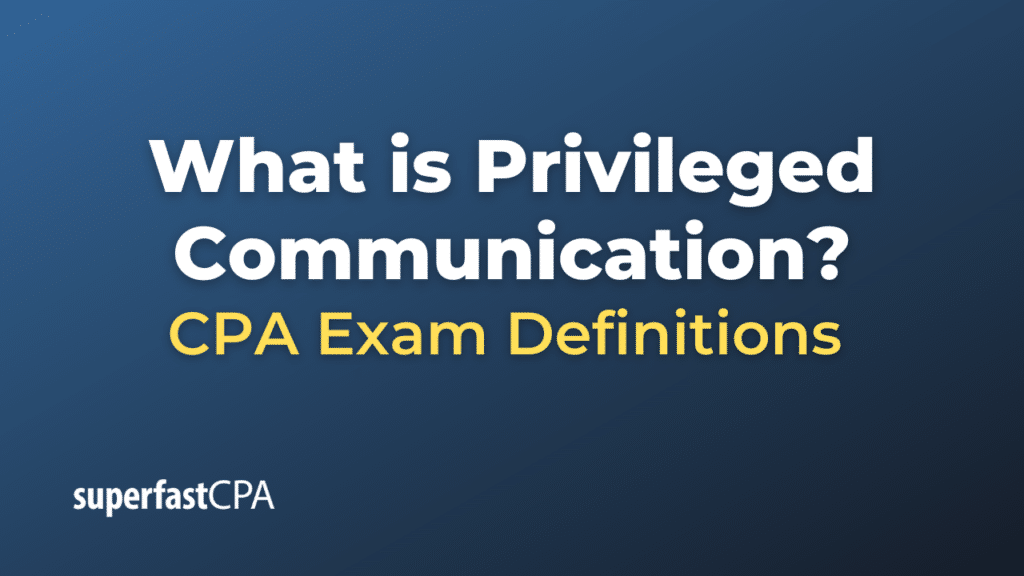Privileged Communication
Privileged communication is a legal concept that refers to interactions between two parties that the law recognizes as being private and confidential, and therefore protected from disclosure in court or to other third parties. This means that, generally, such communications cannot be introduced as evidence without the consent of the party that holds the privilege.
The concept of privileged communication is typically applied in contexts where one party has a professional obligation to maintain the other party’s confidentiality, and is designed to promote honesty and candor in certain types of important relationships.
Examples of privileged communication include:
- Attorney-Client Privilege: Communications between a lawyer and their client are generally considered privileged, meaning they can’t be disclosed without the client’s consent. This encourages clients to be fully honest with their lawyers, which helps the lawyer provide the best possible representation.
- Doctor-Patient Privilege: Similarly, communications between a doctor and their patient are often privileged, encouraging patients to disclose all necessary health information without fear that it will be shared with others.
- Clergy-Penitent Privilege: Conversations between a clergy member and a person seeking spiritual advice are also typically privileged, encouraging open and honest communication in this context as well.
- Spousal Privilege: Communications between spouses are usually considered privileged under law, promoting open and honest communication within the marriage.
It’s important to note that these privileges can be waived by the party who holds them, and that there are also exceptions to these rules. For instance, the attorney-client privilege might not apply if a client reveals that they intend to commit a crime. The exact rules can vary significantly depending on jurisdiction.
Example of Privileged Communication
Imagine Jane has been charged with a crime. She hires an attorney, Bob, to represent her in court. Jane tells Bob everything about the situation, including details that make her look guilty. Because of attorney-client privilege, a form of privileged communication, Bob cannot be compelled to reveal the details of their conversations to the court. This protection allows Jane to be completely honest with Bob, which is crucial for Bob to provide the best defense possible.
However, suppose Jane tells Bob that she plans to lie on the witness stand. Attorney-client privilege does not protect future crimes, including perjury. Bob would be obligated to inform the court if Jane proceeds with her plan to lie.
Furthermore, if Jane invites a friend to one of her discussions with Bob, the presence of a third party might waive the attorney-client privilege, as the communication is no longer strictly between the attorney and the client.
These examples show how privileged communication operates in a legal context, promoting open and honest discussion while also having certain limitations and exceptions.













